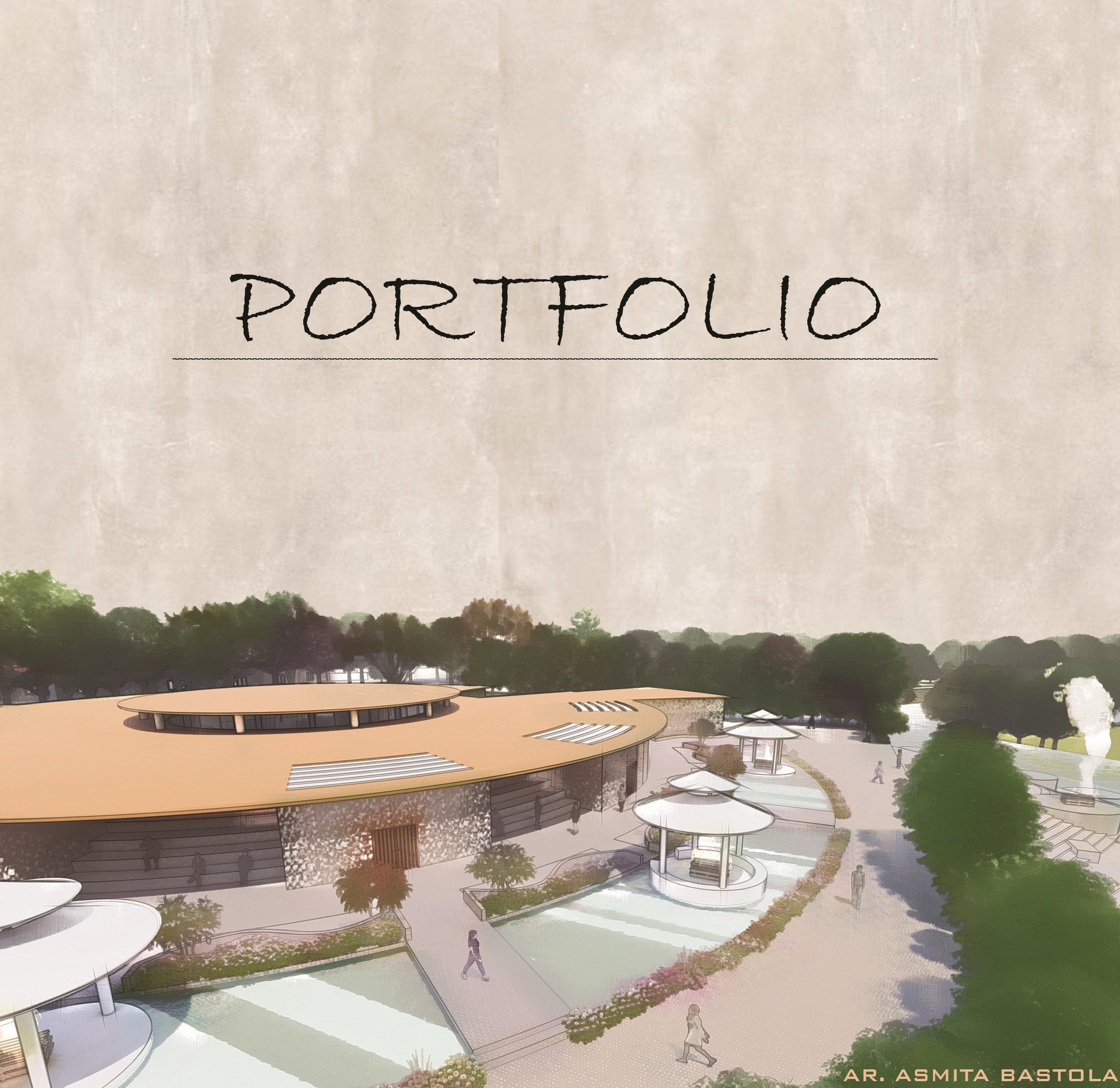




| 2017-2023 | BACHELOR OF ARCHITECTURE ENGINEERING
Thapathali Engineering College, Kathmandu, Nepal
| 2015-2017 | HIGHER SECONDARY EDUCATION BOARD
Pokhara Higher Secondary School, Pokhara, Nepal
| 2004-2015 | SCHOOL LEAVING CERTIFICATE
Balmandir Higher Secondary School, Pokhara, Nepal
| April - Nov 2020 | GRIHA PRABESH DESIGN STUDIO, Gwarko, Lalitpur | Internship
| May 2023- June 2024 | BARYTECH ENGINEERING CONSULTANCY, Sankhamul, Lalitpur | Full-Time Architect
| May 2022- Current | GANDAKI ENGINEERING CONSULTANCY, Pokhara, Nepal | Part-Time Architect
TECHNICAL SKILLS
• Autocad | Sketchup | Revit (Basic)
• Lumion |Vray (Basic) | Enscape (Basic)
• Photoshop |Indesign
SKILLS
• Willingness to learn
• Attention to detail
• Adaptability







Thesis
Project Type
Year 2023
Location Gaighat, Pokhara
“The Last Journey: Designing a Serene Hindu Crematorium” is a project that explores the intersection of cultural traditions and contemporary architectural design.
This project aims to create a tranquil and respectful space for Hindu cremation rituals, honoring the deceased while providing solace to the bereaved. Emphasizing natural elements, spiritual symbolism, and sustainable practices, the design offers a serene environment that reflects the solemnity and sanctity of the final journey.


Location: Gaighat, Pokhara
Proposed Area: 30 ropani
Site is located in the contour land in the bank of seti-gandaki River flowing east to west. It features the Seti-Gandaki River in the north, as well as a stunning views of Mount Fishtail and the Annapurna range. Temples and residential areas can be seen on the western side. Residential areas can be found on the eastern and southern sides.
The two road connected to the site are from Gaighat road with an approximate width of 10m.





PATHWAY COVERED BY PARIJAT TREES

GARDEN AREA FOR INDIVIDUAL FAMILY

SHIVA LINGA AT THE CENTRE OF CREMATORIUM

CREMATION AREA COVERED WITH FLOWERING PLANTS AND NEEM TREES

WAITING HALL WITH THE PLAY OF LIGHT

A BIT NARROW PATHWAY LEADING TO CREMATION AREA

ELECTRIC CREMATORIUM

IMPROVISED PYRE CREMATORIUM

RIVER CANAL TO PREVENT RIVER POLLUTION

BRAHMANAL STONE IN DIFFERENT LVL.

SHIVA STATUE AT THE ENTRY

GARUD PURAN SPACE IN KRIYAPUTRI BLOCK

FOR PINDA OFFERINGS

PYRE CREMATION


BANYAN TREE AT THE ENTRY OF CREMATORIUM BLOCK REPRESENTING YAMA

BRAHMANAL PLATFORM FOR RITUALS



Circular shapes symbolizes the cyclical nature of life and the universe. The circle represents completeness, unity, and the idea that life is eternal and never-ending—central beliefs in Hinduism. It symbolizes moksha, or liberation, where the soul is released from the cycle of rebirth and enters a state of ultimate peace and happiness. This creates a profound sense of reverence and connection to the divine.
Gabion walls were used, repurposing scattered stones from the riverbank. This thoughtful reuse honors the landscape and imbues the structure with deeper meaning. The rebirth of these stones symbolizes the soul’s journey after death, reflecting Hindu beliefs in life’s cyclical nature. This approach emphasizes sustainability and reverence for the environment, creating a space rich in ecological and spiritual significance.


Waiting Hall

Pathway to Crematorium

Project Type
Conservation Studio Year 2022
Location
Kritipur, Kathmandu
This project focuses on conserving the historical and cultural significance of the Adinath Temple premises. It proposes various steps for enhancing and revitalizing the spaces. The initiative aims to preserve the site’s architectural and cultural integrity through thoughtful practices, ensuring the premises reflect’s its original identity.


The Adinath Lokeshwor Temple complex, situated in Chovar (Chwo ), Kirtipur Municipality, ward no. 6, is a significant religious and cultural shrine. The main deity, Anandadi Lokeswara, is the oldest among the four Lokeswaras in Newah Buddhism.
As part of the conservation project, the first step involved documenting all the monuments within the complex. This included creating an inventory and assessing their historical value. Based on this assessment, necessary intervention such as consolidation, adaptive reuse, and preservation were proposed to ensure the monument’s long-term preservation and usability.


Master Plan of Adninath Temple Premises

Existing Plan of Adninath Temple Complex
Proposed Plan of Adninath Temple Complex


Existing and Proposed




Project Type
Post Disaster Housing
Year 2022
Location
Panipokhari, Dolakha
This project is in response to the 2015 earthquake that has affected many part of Nepal includingBosimpa village in Dolakha district.
The project aimed to provide practical and affordable housing solutions while fostering a sustainable community environment.



Residents were allocated phased govermental funding totaling 3 lakhs NPR: 50,000 NPR for the plinth, 1.5 lakhs NPR for the lintel, and 1 lakh NPR upon roof completion. And for the project, savings of 1 to 2 lakhs NPR per household was considered. The approach for the project was incremental housing developed over three phases, addressing immediate shelter needs and supporting future growth as residents’ financial situations improves.

Second Phase Construction


Third Phase Construction

In terms of design, sustainable building materials were emphasized, including CBSE blocks for walls, wood for structural elements, glass panels for natural lighting, and nigalo for roof insulation. These materials were chosen for their durability, cost-effectiveness, and environmental suitability, reflecting considerations for post-disaster reconstruction.
The project also integrated income-generating opportunities within the community design, such as cattle rearing farms and vegetable gardens. These initiatives aimed to promote economic stability and empower residents through agricultural and entrepreneurial activities, aligning with sustainable development goals.


Project Type Landscape Design Year 2023
Location Maitighar, Kathmandu
The landscape studio project focused on revitalizing D-Block from its original warehouse-style classrooms into functional learning spaces integrated with thoughtful landscape design.
The design incorporated green spaces, pathways, and seating areas to harmoniously blend educational facilities with natural surroundings.


Project Type
Governmental Project Year 2024
Location Biratnagar, Kathmandu
The street beautification project in Biratnagar aimed to revitalize a previously degraded urban area, focusing on improving aesthetics and functionality.
Through a combination of infrastructure upgrades, enhanced green spaces, and artistic elements like murals, the project transformed the streetscape into a vibrant and inviting space.






Project Type
Governmental
Project Year 2024
Location Maitighar, Kathmandu
The Gumba design project in Dhankuta aimed to create a culturally significant and spiritually enriching space for the community.
Located in the serene landscapes of Dhankuta, the project focused on designing a Gumba (Buddhist monastery) fulfilling the functional and spiritual needs of its inhabitants.









